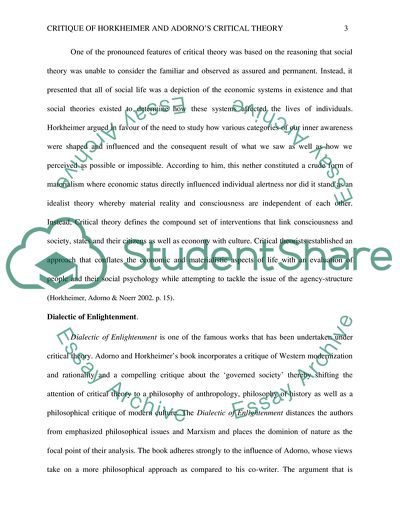Cite this document
(Critique of Horkheimer and Adornos Critical Theory Essay Example | Topics and Well Written Essays - 3500 words, n.d.)
Critique of Horkheimer and Adornos Critical Theory Essay Example | Topics and Well Written Essays - 3500 words. https://studentshare.org/philosophy/1855171-adornohorkheimer-the-dialectic-of-enlightenment
Critique of Horkheimer and Adornos Critical Theory Essay Example | Topics and Well Written Essays - 3500 words. https://studentshare.org/philosophy/1855171-adornohorkheimer-the-dialectic-of-enlightenment
(Critique of Horkheimer and Adornos Critical Theory Essay Example | Topics and Well Written Essays - 3500 Words)
Critique of Horkheimer and Adornos Critical Theory Essay Example | Topics and Well Written Essays - 3500 Words. https://studentshare.org/philosophy/1855171-adornohorkheimer-the-dialectic-of-enlightenment.
Critique of Horkheimer and Adornos Critical Theory Essay Example | Topics and Well Written Essays - 3500 Words. https://studentshare.org/philosophy/1855171-adornohorkheimer-the-dialectic-of-enlightenment.
“Critique of Horkheimer and Adornos Critical Theory Essay Example | Topics and Well Written Essays - 3500 Words”. https://studentshare.org/philosophy/1855171-adornohorkheimer-the-dialectic-of-enlightenment.


